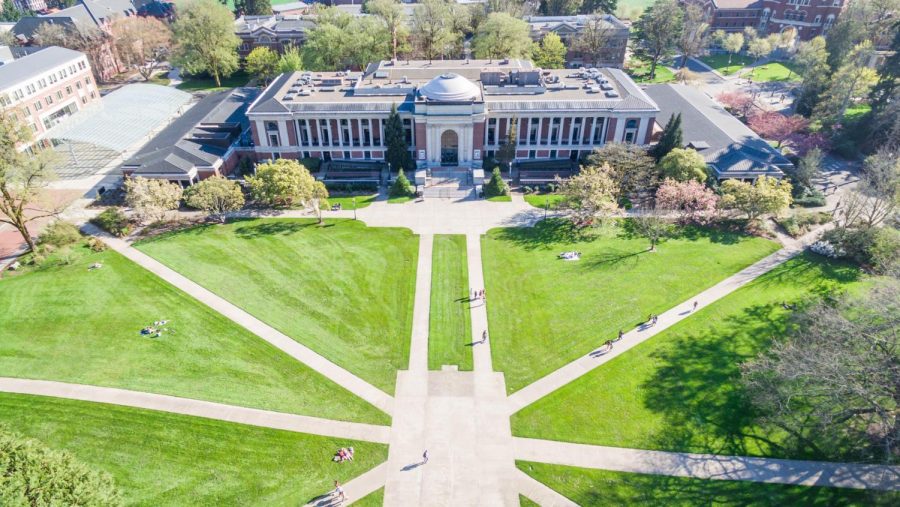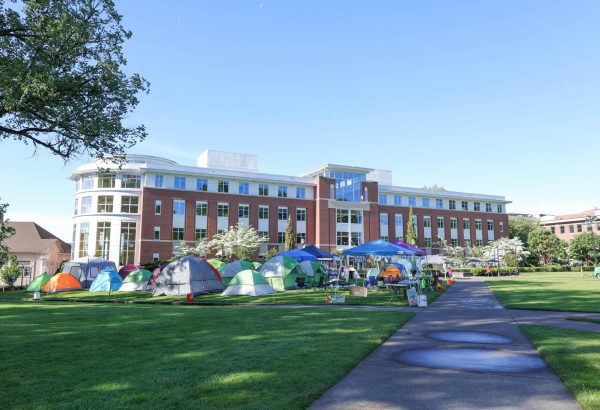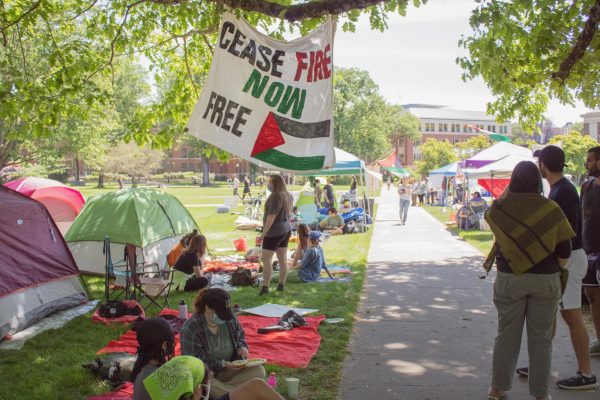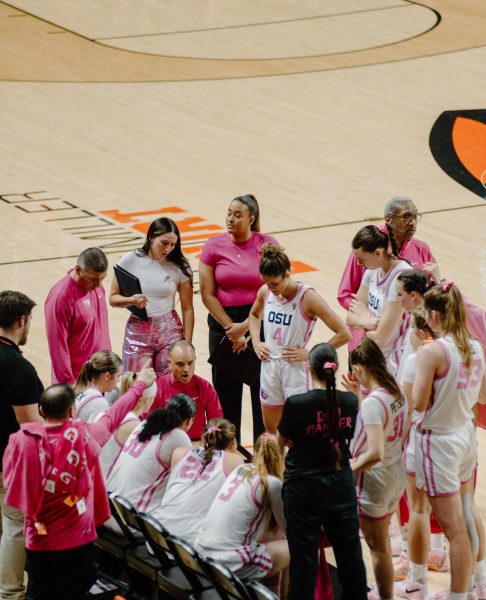UPDATE: OSU transitions to online finals, classes where possible; student reactions mixed
March 11, 2020
Oregon State University announced Wednesday that it will conduct winter term finals remotely, and teach courses remotely during spring term until further notice, where possible.
Faculty will be able to determine, based upon the requirements of their courses, whether or not a final can be offered remotely, according to OSU Vice President for University Relations and Marketing Steve Clark. The Office of the Registrar will provide locations where testing can occur with social distancing in place.
Social distancing is defined by the Centers for Disease Control and Prevention as avoiding large crowds and maintaining a six-foot distance from others. In addition, individuals are advised to stay at home if they feel sick and to avoid all contact with anyone that displays symptoms of illness.
The university said in an email that it is taking these steps to assist the global effort in containing the spread of the COVID-19 strain of the coronavirus. All non-essential OSU-sponsored events that take place in person must have less than 50 attendees. For events of less than 50 attendees, the university encourages social distancing.
“While the risk remains low in Oregon, it is most essential and responsible for the university not only to remain open but to employ social distancing methods,” Clark said.
COVID-19 is a novel coronavirus, and very little is known about its nature.
It is pneumonia—not influenza—and is more contagious than the seasonal flu. COVID-19’s mortality rate of about 3.4% is higher than the seasonal flu, which has a mortality rate of less than 1%, but lower than diseases such as Ebola virus disease, which has an average death rate of 50%, according to the World Health Organization. Symptoms of COVID-19 include runny nose, headache, cough, sore throat, fever, shortness of breath and chest pain or tightness when breathing and coughing.
Individuals over 60 years of age and individuals with weakened immune systems are more vulnerable to infection from COVID-19 given the same exposure as a non-immunocompromised individual under 60 years old. If infected, they also tend to develop more serious symptoms and face a higher risk of mortality.
OSU facilities and operations, including the residence halls, will remain open while classes are delivered remotely, until further notice. Classes will continue as scheduled for the rest of this week, with the higher level of response going into effect on Saturday, March 14, though some instructors have chosen to cancel classes.
The escalation in measures taken by the university is in part due to a presumptive case of the virus in Deschutes County and testing for a possible case in Benton County. Clark said the presumptive Deschutes County case is not, to his knowledge, affiliated with the university.
There was no information available about the testing for a possible case in Benton County at the time of publication.
These measures will be re-evaluated every two weeks, according to an all-student email.
According to Clark, 15 rooms are identified as potential locations to isolate students for 14 days of self-monitored isolation.
Students, faculty and staff are discouraged from traveling during spring break, according to the email.
“We would ask our students to remain informed and engaged with good personal public health practices,” Clark said.
The university felt it was essential to inform students, faculty and staff at this time to ensure finals could be offered in the safest environment possible, Clark said.
Devon Graham, a graduate student and instructor in women, gender and sexuality studies, said she thinks the decision will not only negatively affect the quality of educational experiences, but will also cause difficulties for teachers transitioning to teaching online classes, and will hurt low-income students who do not have ready access to materials needed to participate in online education.
“I think that students will be coming into contact with one another in the environment of Corvallis, whether there is in-person class or not, and so that makes me question the necessity of it,” Graham said. “I’m thinking from a teaching standpoint that transitioning everything to online classes is going to be very difficult for the quality of educational experience, but also for low income students, students who don’t have reliable access to Wifi, to laptops, because I think we assume everybody has laptops and iPhones, but that’s not the case.”
Some students, like Mara Soans, a first-year biology major, feel the decision is a good one.
“I know my parents are probably going to be happy, they call me a lot asking me if I know of what’s going on, but dang, I don’t think it’s a great way to get a feel for the classes you are committing to for next term,” Soans said. “I guess, better safe than sorry. I think, especially going into spring break, everybody is going to be going from here and dispersing back into where they live, so I feel like it’s probably smart, as far as before everyone comes back here and brings whatever with them.”
Jace Littlefield, first-year kinesiology major, said he thinks having a full load of online classes will be difficult, but also thinks the decision will be effective in helping prevent the spread of COVID-19.
“I’ll probably just go home for the spring term and do school at home and then get a job or something,” Littlefield said. “I feel like it’s going to be tough but it’s a great idea, especially now so it doesn’t keep spreading basically, because it keeps spreading which is the hard part.”
This is a developing story. More information will be provided as it becomes available.























































































































